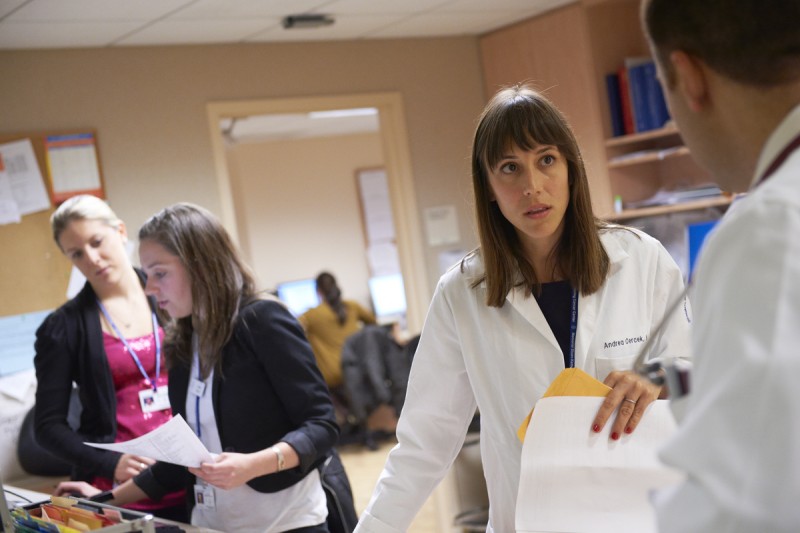
We are excited to announce the opening of the Center for Young Onset Colorectal Cancer at Memorial Sloan Kettering Cancer Center. This is the first center in the world dedicated to adults under the age of 50 with colorectal cancer. Its two-part mission is to:
- provide coordinated care to help these patients navigate the unique challenges they face at diagnosis, throughout their treatment, and into survivorship
- build upon ongoing research efforts and foster new collaborations to determine the etiology and improve prevention, diagnosis, treatment, and outcomes for this disease
Rising Rates of Colorectal Cancer in Young Adults
Since the mid 1980s, the overall incidence of colorectal cancer in the United States has been decreasing. However, the incidence of colorectal cancer in those under the age of 50 has been increasing at an alarming rate (1).
In fact, researchers calculate that adults born circa 1990 have double the risk of colon cancer (IRR = 2.4, 95% CI = 1.11 to 5.19) and quadruple the risk of rectal cancer (IRR = 4.32, 95% CI = 2.19 to 8.51), compared with those born circa 1950. By 2030, the incidence of colorectal cancer in people under 50 is expected to nearly double (2).
The cause of this unexpected increase remains unclear, and the characteristics of these younger patients are not fully understood.
Adults under 50 are not routinely screened for colorectal cancer according to current national guidelines. A recent survey by the Colorectal Cancer Alliance found not only an increase in young-onset colorectal cancer but also that almost 75 percent of patients in this demographic are presenting with advanced-stage disease. (3) Clearly more research is critical to investigate the reasons behind this unexpected increase, and to help guide screening in efforts to decrease the incidence and mortality of this potentially curable disease in this young population.
The Center for Young Onset Colorectal Cancer
In MSK’s high-volume colorectal cancer practice, about 25 percent of our patients are under the age of 50, and this number continues to increase. We feel it is imperative to investigate the reasons behind this unexpected increase while providing our patients with top-quality, coordinated care. This goal is realized in the Center for Young Onset Colorectal Cancer.
This new center will continue to provide adults under the age of 50 with the optimum individualized treatment plan for their cancer while also focusing on the specific needs of this population. For instance, pregnancy and fertility considerations underscore the need for early intervention and need to be factored into treatment plans that include the possibility of incontinence, diminished sexual function, changes in body image, and other psychosocial issues.
In our new center, a multidisciplinary clinical care team and support experts including social workers, psycho-oncologists, nutritionists, and fertility and sexual health experts will guide patients through their treatment.
Research to Improve Prevention, Detection, and Outcomes
At MSK, we have treated nearly 4,000 colorectal cancer patients under the age of 50 over the last decade. Analyzing their patient records to try to identify risk factors driving the rise in colorectal cancer has raised many questions. For example, obesity and smoking are known risk factors for colorectal cancer. But our patients had lower rates of obesity and were less likely to smoke than their peers who did not develop cancer.
Molecular and genetic analyses are under way in an effort to elucidate the etiology and biology of young-onset colorectal cancer. Our center will provide the ability to prospectively collect and analyze risk factors, molecular characteristics, and microbiome, among many other data points. The center will focus on collaborative research efforts for several departments including translational research, pathology, epidemiology, and infectious disease as well as psychology and psychiatry.
At MSK, we are dedicated to improving care and outcomes for people with young-onset colorectal cancer. Physicians should be alert to the recent increase in colorectal cancer among adults under the age of 50. Colorectal cancer should be considered in younger patients who present with persistent gastrointestinal symptoms — abdominal pain, rectal bleeding, blood in stool, narrowing of stool, or change in bowel habits — and should be followed very closely to determine whether further evaluation is warranted.




